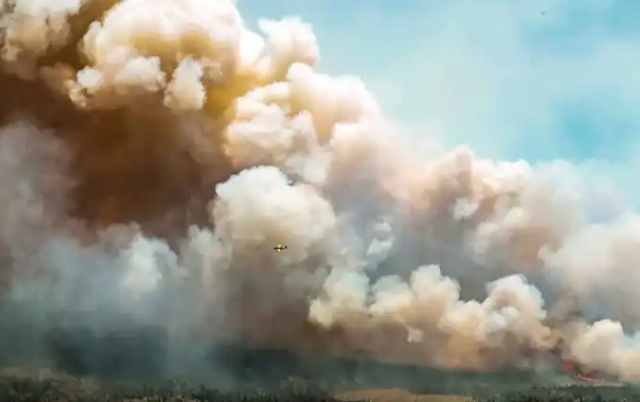Canada has been dealing with a series of intense wildfires that have spread from the western provinces to Quebec, with hundreds of forest fires burning. The smoke has traveled into the United States, resulting in a number of air quality alerts issued since May.
On Tuesday, the U.S. Environmental Protection Agency issued a poor air quality alert for New England, a day after parts of Illinois, Wisconsin and Minnesota received a similar advisory. Last week, U.S. officials as far south as Maryland, Baltimore, Virginia and Pennsylvania reported being impacted by the wildfires.
The most recent fires near Quebec have been burning for at least several days.The EPA said hazy skies, reduced visibility and the odor of burning wood are likely, and that the smoke will linger for a few days in New England.
“It’s not unusual for us to get fire smoke in our area. It’s very typical in terms of northwest Canada,” Darren Austin, a meteorologist and senior air quality specialist with the Rhode Island Department of Environmental Management said. “But the smoke usually has been aloft and doesn’t affect people’s health,” he added.“The Quebec-area fires are big and relatively close, about 500 to 600 miles away from Rhode Island. And they followed wildfires in Nova Scotia, which resulted in a short-lived air quality alert on May 30”, Austin said .
Trent Ford, the state climatologist in Illinois, said the atmospheric conditions in the upper Midwest creating dry, warm weather made it possible for small particulates to travel hundreds of miles from the Canadian wildfires and linger for days.“It’s a good example of how complex the climate system is but also how connected it is,” Ford said.
“If you have filters on your home HVAC system, you should make sure they’re up to date and high quality.” “Some people, particularly those with underlying lung disease, or heart disease, should consider investing in in air purifiers for their homes,” a statement according to Hill for safety precautions.






